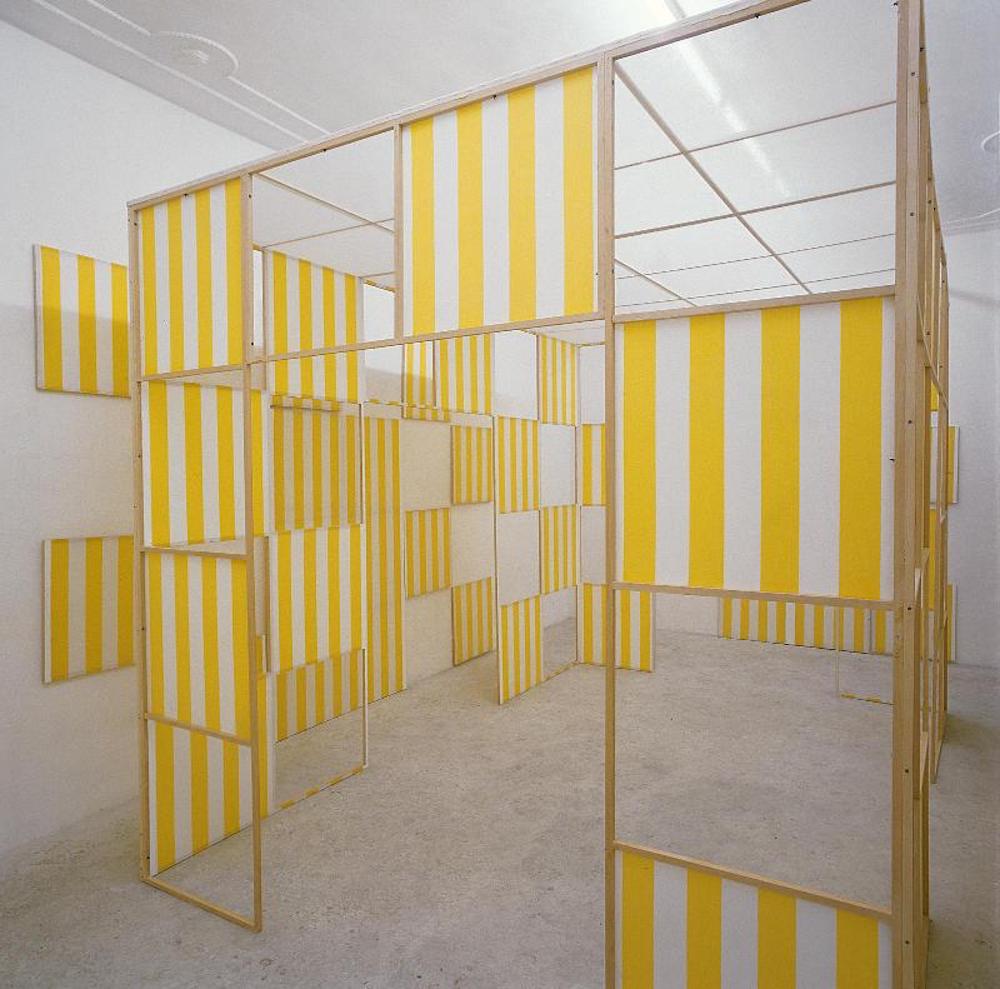Interlude - Daniel Buren at the Centre Pompidou
The art industry must be one of the hardest hit in the current pandemic. The buying and selling of works between dealers and buyers depends on personal contact, though I’m sure a lot of sales for investment can be conducted virtually. More gravely, the showing of museum collections for paying visitors is impossible now. Less importantly, travel lockdowns mean that the peripatetic lives of star artists aren’t really doable either.
Consider the case of Daniel Buren, the French Minimalist installation artist who famously doesn’t even have a studio, and moves around the world wherever his current project takes him. Projects such as his Cabanes éclatées, one of which, number 6 in the series, is in the collection at the Centre Pompidou.

It’s highly characteristic of Buren’s other works, in that it incorporates his favoured visual motif of two-coloured vertical stripes, and in its interactivity: with the cabane’s carefully-framed cotton fabric squares filling the room of the gallery, visitors are encouraged to wander inside the pathways it creates.
I’ve seen Buren’s stripes elsewhere: the black and white striped columns in the forecourt of the Palais Royal a short walk from the Pompidou, or, closer to home, next to the new escalator at Tottenham Court Road tube station. All three venues seem equally distant to me, locked down in my flat.
Buren’s practice of travel has become impossible in this pandemic. His pleasant architectural interventions seem irrelevant - he was always so much less provocative than his American Minimalist counterparts, like Carl Andre or Donald Judd, anyway. And what’s the point of site-specific art when nobody can get to or enjoy these sites any more? Public art is unreachable when there seems to be no public realm, for a while at least.
Artists like Buren become absent in these changed circumstances. I wonder to what extent he’ll be back (at 82, he’s firmly in the at risk group for this discriminating killer). I wonder when we can visit him again, or if we’ll want to.
Cabane éclatée No 6 is in the permanent collection at the Centre Pompidou, Paris